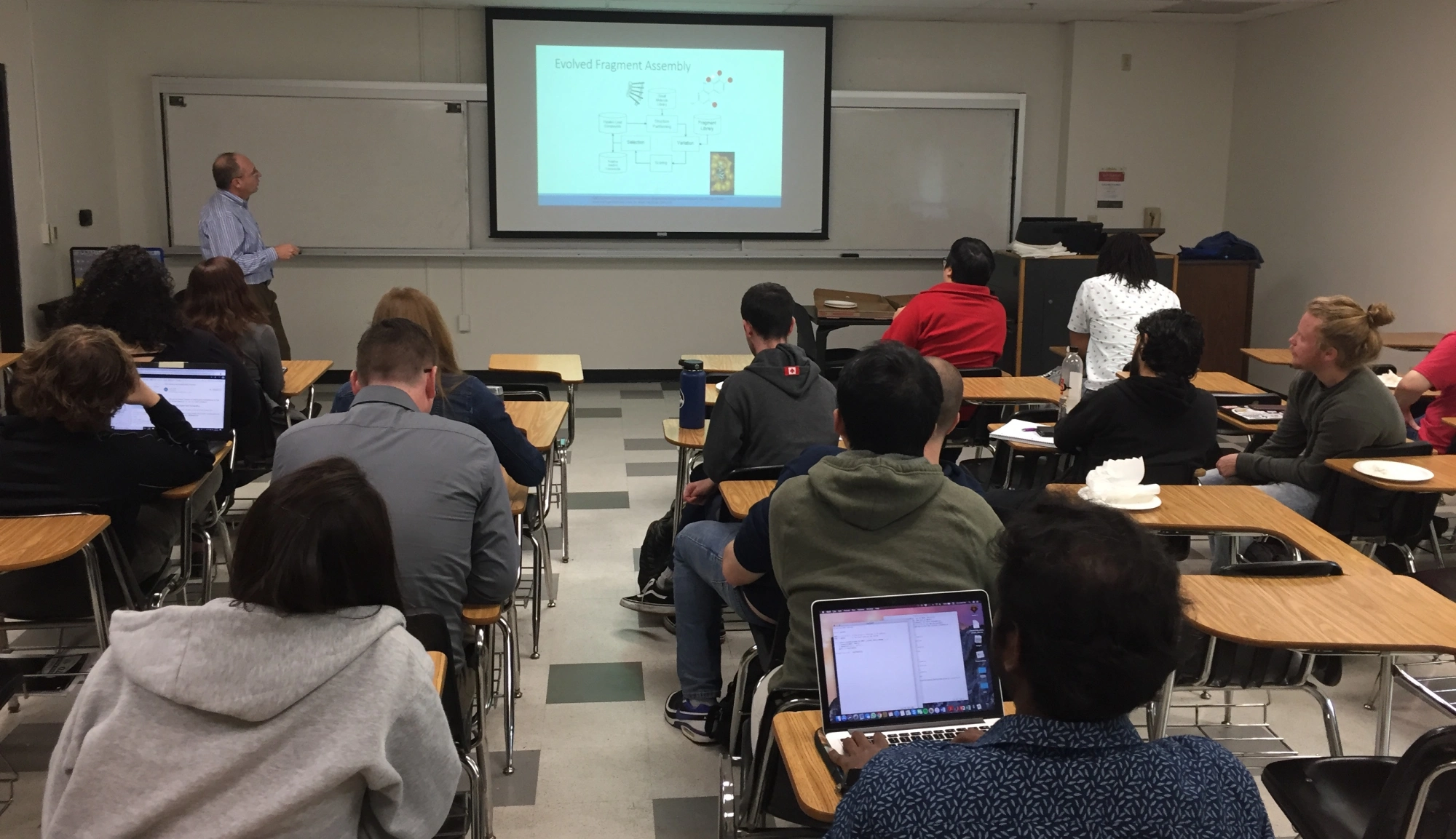In case you missed the community lecture on Friday, February 15th, 2019, we hosted Dr. Gary Fogel from Natural Selection, Inc. Dr. Fogel has more than 25 years of experience in computationally-based drug optimization and development. He is an IEEE Fellow and has received awards from Sigma XI and other organizations for his work in predictive analytics using machine learning methods. Dr. Fogel also serves as an Adjunct Faculty with the CSRC and Aerospace Engineering department at SDSU.
Dr. Fogel’s talk was titled “Computational Intelligence Applications in Healthcare.” He shared his work in stem cell research which focuses on microRNA on and off patterns to predict developmental stages. The goal of this research is to direct and drive stem cell development by building networks of highly-correlated microRNAs.
In terms of computational drug discovery, Dr. Fogel’s company uses evolutionary algorithms, a nature-inspired method, to build a co-evolutionary game. This model optimizes a target protein evolutionary response when it’s exposed to a certain drug. Dr. Fogel’s company has been using this technique with Malaria. Given the enormous costs associated with developing and testing drugs, the co-evolutionary game models how evolution will change the Malaria protein structure to predict drug longevity and effectiveness. A proof of principle was recently demonstrated with early strains of drug-resistant Malaria.
Notable Question:
Could this technique be applied to MRSA?
It can work but we need a lot of information on how MRSA has developed in order to predict its evolutionary path.
